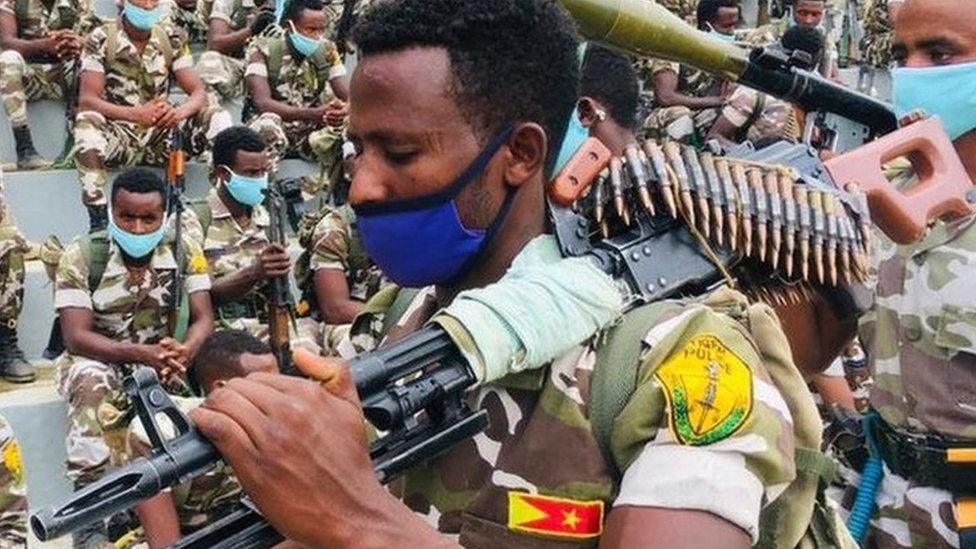Ethiopia Tigray crisis: Rockets hit outskirts of Eritrea capital
- Published
''We fled from death and murder''
The 12-day conflict between Ethiopia's government and forces in the country's Tigray region has escalated.
The Tigrayan forces fired rockets across the border into neighbouring Eritrea, after claiming Ethiopian soldiers were using an Eritrean airport to attack Tigray.
Ethiopia's prime minister appeared to deny the accusations in a tweet, external.
But analysts say the latest attacks mark a major uptick in a conflict which has displaced thousands of civilians.
Ethiopia has been through big changes since Prime Minister Abiy Ahmed came to power in 2018. He was awarded the Nobel peace prize last year after reaching out to make peace with neighbouring Eritrea, with whom Ethiopia had fought a bloody war two decades ago.
But the widespread reforms he pushed through sidelined the Tigrayans of the Tigray People's Liberation Front party (TPLF) who had long dominated the political scene - and in recent weeks, tensions between the party and the federal government seriously escalated.
Animosity between the government in Tigray and Eritrea goes back a long way, according to the BBC's Africa regional editor Will Ross, who says much of it stems from that border war of 20 years ago which left tens of thousands of soldiers dead.
On Sunday, the Ethiopian Human Rights Commission said gunmen had killed at least 34 people on a passenger bus on Saturday night in the western region of Benishangul-Gumuz.
The region has seen other acts of violence recently and there has so far been no known link with the Tigray region.
What happened in the attack on Eritrea?
On Saturday night, residents of Asmara - Eritrea's capital - reported hearing loud explosions, amid reports of rockets landing near the city's airport. No casualties have been reported yet.
Tigrayan leader Debretsion Gebremichael has suggested that his forces have been fighting 16 divisions of the Eritrean army on several fronts for the past few days.
The Tigrayans have also accused Eritrean forces of crossing into Ethiopia to back federal forces there.
On Sunday, in a tweet, external, Mr Abiy appeared to deny that Ethiopian national forces were working with Eritreans, saying that Ethiopia was "more than capable of attaining the objectives of the operation by itself".
But while Eritrea and Ethiopia have denied co-operating in the conflict, our regional editor says reports of fighting along the border, and of Ethiopian soldiers being treated in Eritrean hospitals, suggest the opposite is true.

Analysis: Two men with a common enemy
By Will Ross, BBC Africa regional editor
With missiles being fired into Eritrea this conflict has now become far more serious and is likely to be harder to stop. The repercussions could now cause instability in the whole region.
But many people familiar with recent political developments had predicted trouble was brewing when Ethiopia's Prime Minister Abiy Ahmed became a strong ally of Eritrea's authoritarian leader, Isaias Afwerki.
Now the two men have a common enemy - the Tigrayan politicians of the TPLF who dominated Ethiopia's political scene for years, including the time when Ethiopia and Eritrea fought a border war that left tens of thousands dead.
International calls for dialogue have so far been ignored and thousands of civilian refugees continue to flee the fighting into Sudan.

How bad is the violence?


Hundreds have died in Ethiopia since the fighting began, with reports of a civilian massacre emerging this week.
Human rights group Amnesty International said it had confirmed that "scores, and likely hundreds, of people were stabbed or hacked to death" in the town of Mai-Kadra (May Cadera), external on Monday.
Prime Minister Abiy Ahmed has accused forces loyal to Tigray's leaders of carrying out the mass killings, while the TPLF has denied involvement. Ethiopia's human rights commission said it would send a team to investigate.
Why are the government and TPLF fighting?
The TPLF dominated Ethiopia's military and political life for decades before Mr Abiy took office in 2018 and pushed through major reforms.
Last year, Mr Abiy dissolved the ruling coalition, made up of several ethnically based regional parties, and merged them into a single, national party, which the TPLF refused to join.
Four things that explain the crisis in the Tigray region of Ethiopia

The feud escalated in September, when Tigray held a regional election, defying a nationwide ban on all polls imposed because of the coronavirus pandemic. Mr Abiy responded by calling the vote illegal.
Tigray's administration sees Mr Abiy's reforms as an attempt to hand his central government more power and weaken regional states.
It also resents what it calls the prime minister's "unprincipled" friendship with Eritrean President Isaias Afwerki.
Mr Abiy won the Nobel Peace Prize in 2019 for his efforts to bring peace with Eritrea.
The prime minister believes TPLF officials are undermining his authority.
Mr Abiy ordered the military operation against the TPLF after he said its fighters had crossed "the last red line". He accused them of attacking a military camp hosting federal troops on 4 November, calling the action "treasonous". The TPLF has denied attacking the camp.
- Published14 November 2020
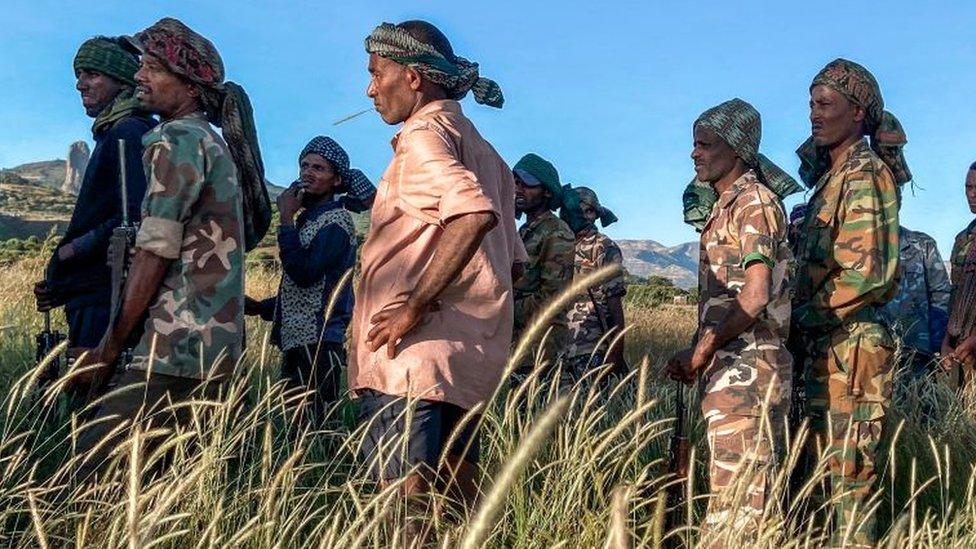
- Published13 November 2020
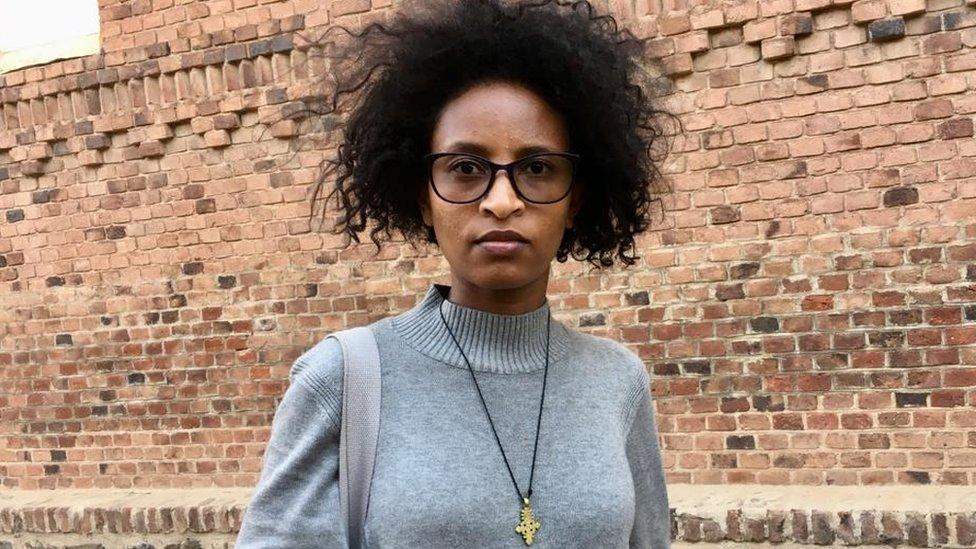
- Published14 November 2020
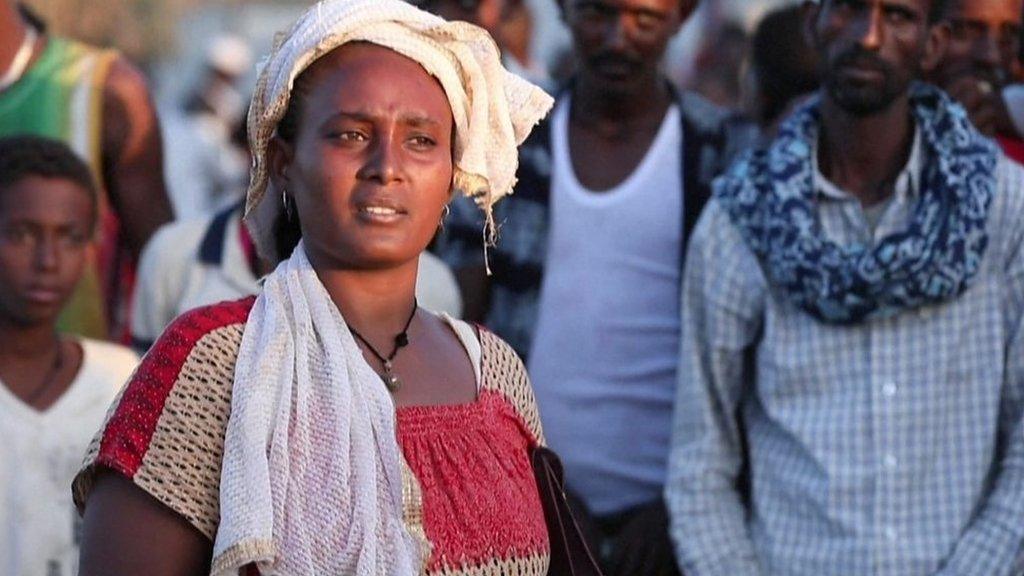
- Published11 November 2020
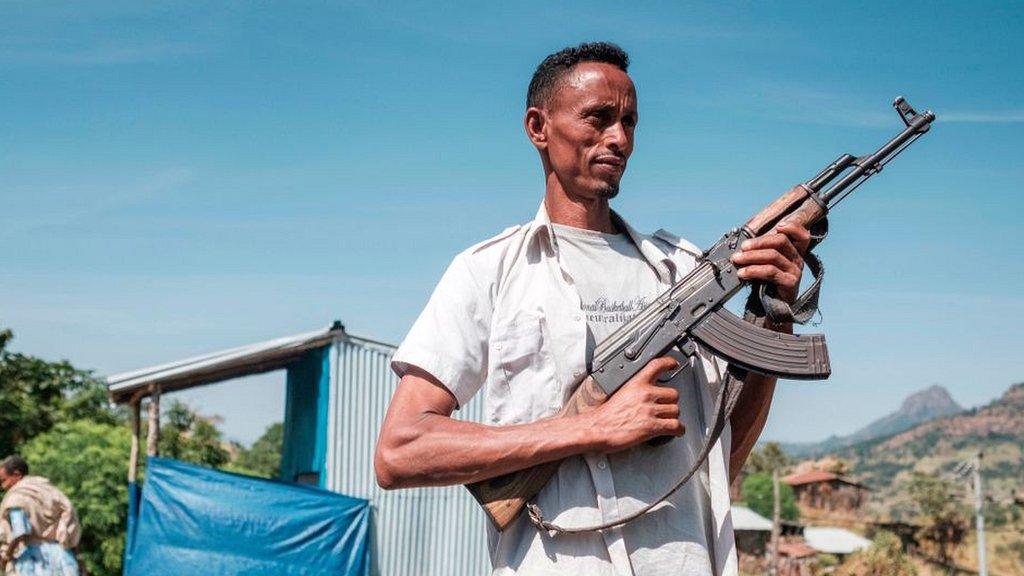
- Published29 June 2019
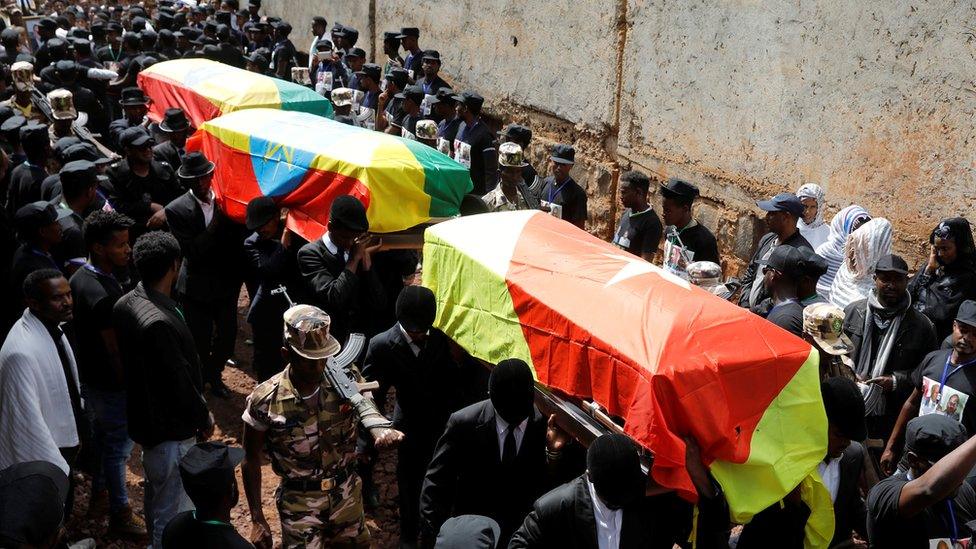
- Published13 November 2020
